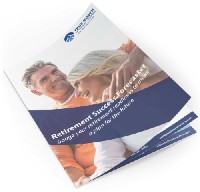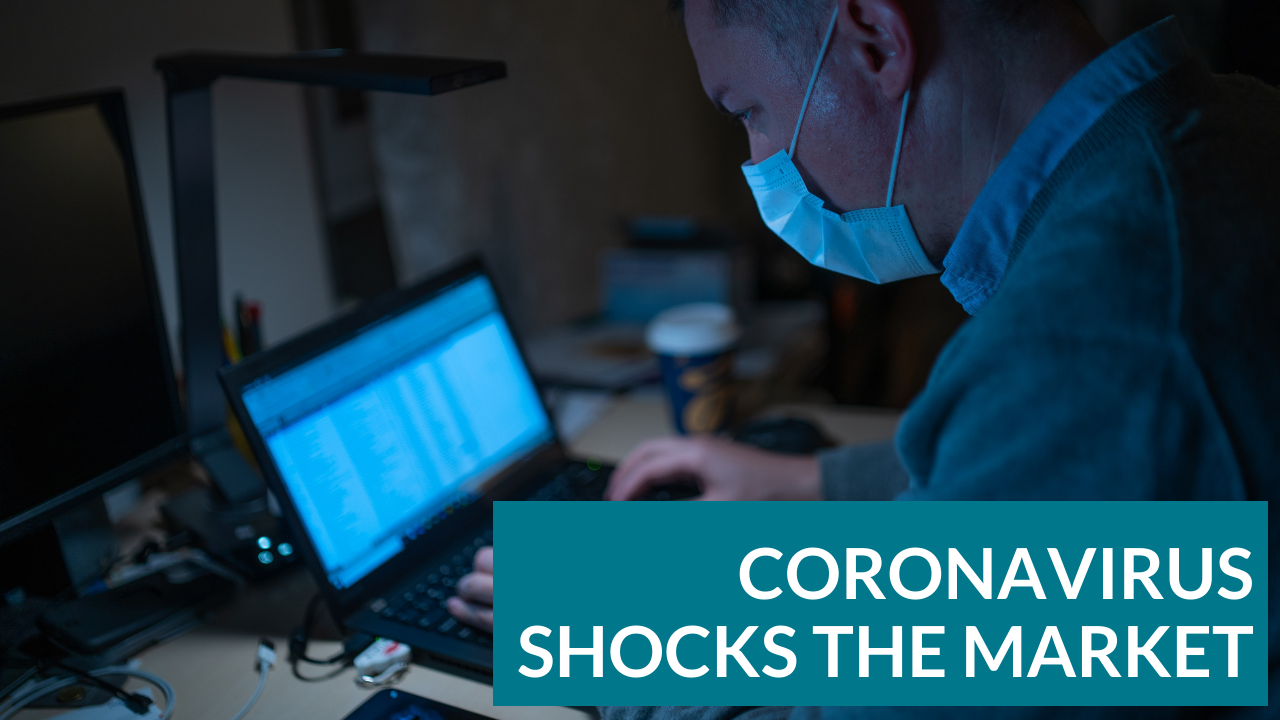
In the Market & Economic Outlook, we separate the relevant from the noise, to bring you timely content that helps you on the path to and through retirement!
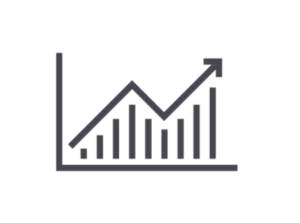 STATE OF THE MARKETS (S&P 500 -21.91% YTD THROUGH 3/12/2020)
STATE OF THE MARKETS (S&P 500 -21.91% YTD THROUGH 3/12/2020)
Impact Of The Coronavirus On The Market
After hitting all-time highs on February 19, stocks suffered some of their sharpest and quickest losses ever as it became evident that the coronavirus is a pandemic. While this disease is much worse than the common flu, it is not the plague. So far, 38 people have died of the coronavirus in the United States (as of March 11, 2020). The flu causes almost 84 deaths each day (2017-2018) – yet we travel, interact, and go about our daily lives without living in fear or isolation.
Unexpected outbreaks like the coronavirus are nothing new. We experienced viral and bacterial outbreaks in 2002-2003 with SARS and in 2012 with MERS without the world economy falling into a depression. In fact, when the SARS outbreak occurred stocks dropped 14% in less than two months only to gain it all back and be up 1% six months later. It seems likely that this event will play out over the course of 3-4 months, and we are nearly two months into this one already.
Shocks to the stock market like we’re seeing now are quite common. If it’s not coronavirus, it’s a government shutdown, a natural disaster, a terrorist attack, a sovereign debt crisis, or a trade war. The stock market reacts to unexpected shocks nearly every year, and often (as we believe is happening right now) the market overreacts. Some corrections are more serious and long-lasting than others, but most are temporary and completely normal. In fact, from 1980 to 2015, despite finishing up for 27 of those 35 years, the stock market dropped an average of 14.2% at some point during the calendar year.
Investors are now fearing the worst when it comes to the economy and profits. Wall Street hates uncertainty and until we can get a handle on the economic impact, stocks will continue to be volatile. Travel, leisure, and companies dependent on China for their supply chains will be particularly hard hit, but once we see the outbreak peak or get a bit of good news, confidence should start to recover, worldwide economic activity should pick up again, and life will eventually return to normal.
What Should You Do Now?
For most clients the best advice is to do nothing, particularly if you have the right mix of stocks and bonds (asset allocation) for your age, risk tolerance, and income needs. However, if you are under-weighted stocks, now would be a good time to start putting your cash to work. Typically, when stocks exhibit such sharp declines, they tend to be up substantially a year later. By almost any measure stocks are extremely oversold, panic has taken hold, and investors are throwing away the baby with the bath water. Much of what we have seen is investors acting on pure emotion and not rational thought – hoarding staples, hand sanitizers, water, and toiletries.
Don’t let the market panic force you into making a bad decision and selling into the teeth of this downdraft. Remember what Warren Buffett said, “be fearful when others are greedy and greedy when other are fearful.”
HOUSING BOOM?
One of the areas that we thought would provide a real boost to the economy in 2020 was the housing market. And now we are starting to see signs that this is happening. Builders are more optimistic than they’ve been in two decades. Low interest rates and low unemployment caused a boom in new home sales in January – jumping 7.9% (Commerce Department) to a seasonally adjusted annual rate of 764,000 units – the highest reading since July 2007. Millennials are expected to be a big driving force in the 2020 housing market – keeping demand strong as they purchase their first home or trade up from the city to the suburbs. In addition, housing inventory has dropped to its lowest level since 1999 and prices have advanced for 95 straights months.
RECORD LOW TREASURIES – CONSIDER REFINANCING NOW
The coronavirus outbreak and very low inflation caused investors to dump stocks in favor of U.S. Treasuries. We are now at record low interest rates on 10-year Treasuries – now 0.536% and 30-year Treasuries – now 0.974%. That means if you invest your money in a 30-year government instrument you will get 0.974% annual yield for 30-years – hardly enough to cover inflation and taxes. For homeowners, if your existing mortgage rate is 4% or higher, you might seriously consider refinancing. The 30-year fixed rate mortgage is now around 3.375% and the 15-year fixed mortgage is 2.875% (both are record lows).
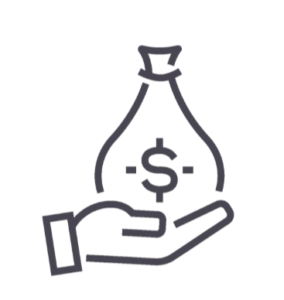 INVESTMENT STRATEGIES
INVESTMENT STRATEGIES
-
BONDS SERVE A VITAL PURPOSE
When stocks are getting crushed because of a black swan event like we are experiencing now, you’re very thankful for having bonds in your portfolio. Bonds serve as a source of capital when stocks are on sale. They also reduce volatility in a portfolio and help to avoid costly portfolio changes in rocky markets. The problem with bonds at these levels is that their yields are rather low, so you need be careful about going too far out on the yield curve – where greater risk lies. It’s better to stick within a range of 1-5 years in terms of maturities.
-
VALUE STOCKS LOOK ATTRACTIVE
Growth stocks have significantly outperformed value stocks over the last decade. Relative to growth stocks, value stocks are very cheap. The valuation spread between growth and value hit an extreme level 15-months ago. The last time that happened – 2003 & 2008, value outperformed growth by 22% and 69% respectively over the next year. Could we be on cusp of something similar? No one knows, but it is probably a good time to add value to your portfolio.
-
WHY DIVIDENDS MAKE SENSE NOW
If a company can earn 6% a year and pays a 2% dividend it should provide an 8% return over the long haul. That compares with a 0.536% annual return for the 10-year Treasury. Plus, high-quality dividend-paying stocks tend to increase their dividends year-in and year-out, providing one of the few increasing sources of income for investors. In addition, high-quality dividend-paying stocks tend to hold up better in down markets and may provide a hedge against inflation and taxes.
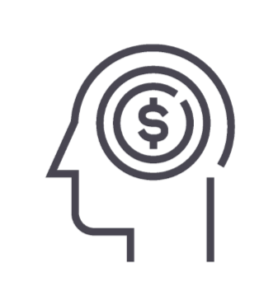 Bottom Line
Bottom Line
Stick to your long-term investment strategy. This is not a time to succumb to fears surrounding the coronavirus and panic out of your quality investments. When a similar outbreak occurred back in 2002 – 2003 (SARS) the market dropped 14% in less than two months only to gain it all back and be up 1% six months later.
The lesson learned from SARS is that these kinds of viral outbreaks do end. Luckily our economy is in a very strong position and is well equipped to handle short-term demand/supply disruptions caused by the coronavirus. The bottom line is to stay the course and remember “panic is not a long-term investment strategy.”





